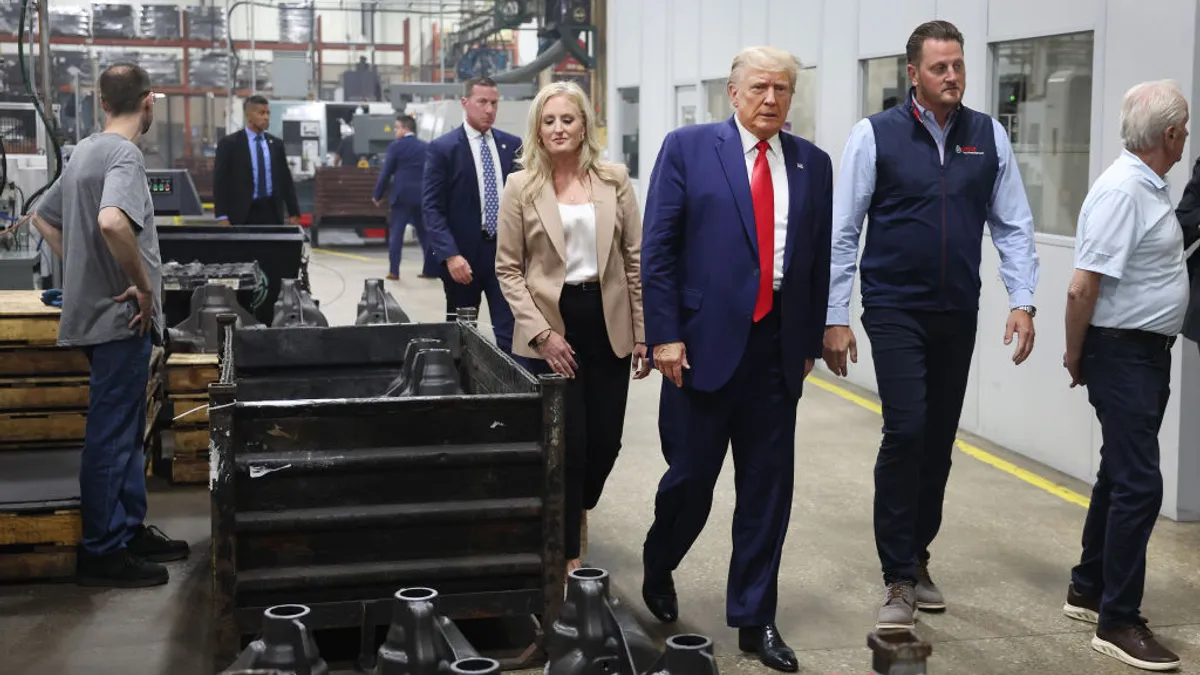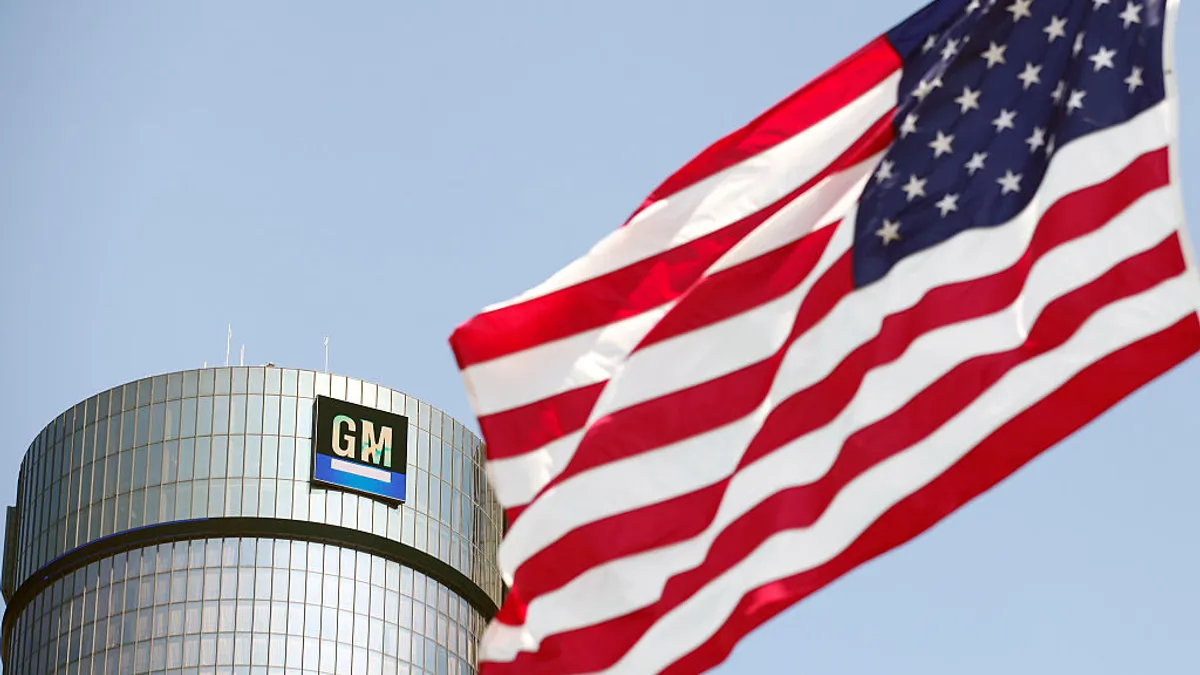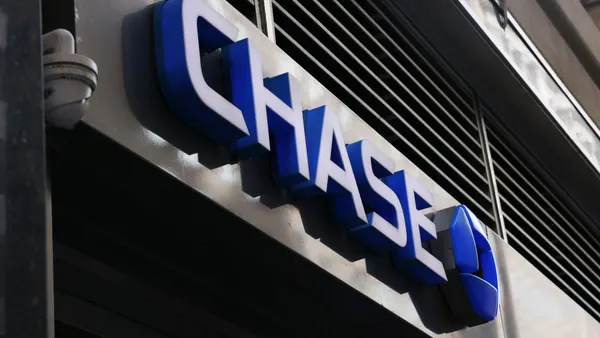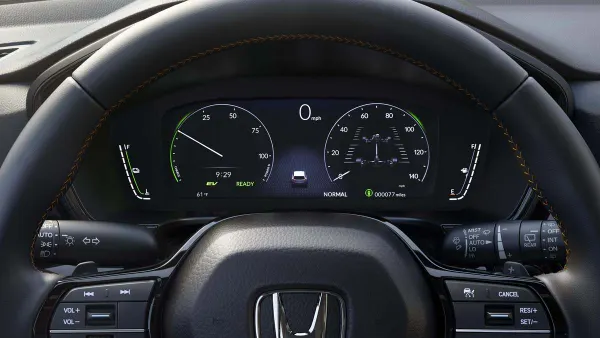Dive Brief:
- Ford Motor Co. has recalled roughly 694,000 vehicles for fuel injectors that may crack and leak fuel, which can lead to an underhood fire, according to the National Highway Traffic Safety Administration.
- The recalled models include certain 2021-2024 Bronco Sport SUVs and 2020-2022 Escapes equipped with Ford’s 1.5-liter, turbo-charged 3-cylinder engine. Drivers may notice smoke or flames emanating from the engine compartment or underneath the vehicle, as well as instrument cluster warnings.
- The automaker currently does not have a remedy available to address the recall, but is notifying owners of the elevated safety risk in letters expected to be mailed on Aug. 18. As an interim repair, dealers will update the engine control software on the vehicles for free. A second letter will be mailed once a final remedy is available.
Dive Insight:
Ford has known of the problem since 2022. The automaker’s Field Review Committee previously approved recalls in November 2022, March 2024 and March 2025 to perform software updates to address the problem with the affected models.
The company’s Field Review Committee approved the third recall in March after acknowledging that some of the vehicles included in the prior two recalls did not receive the correct software update. Ford says the service tool that dealerships used to update the vehicles did not install the correct version.
The three previous recalls however, did not call for fuel injector replacements. Instead, Ford developed a software update designed to detect a fuel leak and mitigate the risk of an underhood fire.
The revised PCM software can detect a pressure drop in the high-pressure fuel rail and warn drivers of a potential problem via the instrument cluster. The software is also designed to disable the vehicle’s fuel pump, lower engine power output and reduce temperatures of possible ignition sources within the engine compartment to further reduce fire risk. Ford dealers also installed a drain tube on the cylinder head to channel any leaking fuel away from the engine or other high-temperature underhood components that may cause it to ignite.
However, the NHTSA was not satisfied with Ford’s remedy, leading the agency to open a recall query on April 11, 2024.
Ford responded to the NHTSA’s inquiry on May 21, 2024, and again on June 21, 2024. The agency also sought additional information from the automaker on Sept. 26, 2024, through a supplemental information request that was related to the NHTSA’s April 2024 safety probe.
As a result of these communications with NHTSA investigators, Ford’s Critical Concern Review Group opened an inquiry on July 23, 2024, for a vehicle that had experienced an underhood fire after receiving the software update. The automaker repurchased the vehicle to conduct more extensive component testing, which identified a cracked fuel injector. However, the fire damage prevented Ford from making a conclusive determination that a fuel leak was the cause of the fire.
From August 2024 through May of this year, Ford continued to verify the effectiveness of its prior remedies by inspecting previously recalled vehicles that had experienced fires after receiving PCM software updates. As part of this probe, the automaker identified one vehicle with an injector that showed evidence of fuel seepage. However, its investigators determined that the leak was too small to cause an underhood fire. Ford also confirmed that this vehicle did not receive the correct software update.
Ford also collected fuel injectors it replaced under warranty to determine the scope of the problem, which were sourced from Italy-based Tier 1 supplier Dumarey Flowmotion Technologies. An estimated .03% of the recalled vehicles are believed to have defective injectors, according to the report.
Between April and May 2025, Ford’s ongoing investigation focused on corrosion as a contributing cause of fuel injector cracks. It included injector leak testing and evaluations of various drive cycle conditions and engine control software functionality. The automaker also looked into the size of the injector cracks to determine how much fuel may have leaked onto the roadway. Testing was done on vehicles with and without the drain tube installed and for vehicles that already received the software fix.
Based on Ford’s analysis of the first recall in November 2022, a cracked injector can leak fuel at a high rate (up to 19 liters per hour) into the cylinder head, which can travel out a drain hole and onto hot engine surfaces.
During a May 29 meeting with the NHTSA, the agency provided Ford with a “full technical briefing about their concerns” of the automaker’s prior recall remedies, the report states. In a June follow-up meeting, Ford presented its latest findings of the root cause, the current and projected rate of injector cracks, as well as the potential for fuel leakage on roadways. Ford also provided the NHTSA with evidence to demonstrate the effectiveness of its solutions in preventing underhood fires.
But on July 7, Ford’s Field Review Committee elected to recall the vehicles to updated engine control software until a final remedy is available.
To date, Ford has identified injector cracks on eight vehicles that experienced underhood fires. Six of these did not have the latest software update. But Ford is not aware of injuries related to fires or leaking fuel.
The original fuel injectors were introduced into production in February 2020, but were superseded and no longer installed as of Feb. 8, 2024. Ford also implemented a production change from the original design “to eliminate stresses that could lead to cracking,” according to the NHTSA.
Ford also extended the warranty on the fuel injectors for 15 years or 150,000 miles as part of a March 2023 customer satisfaction program. The automaker will replace any defective injectors in this timeframe, free of charge.
The latest recall is Ford’s 90th of 2025, which potentially extends to almost six million vehicles. The recall count is the highest-ever in a single year for a major automaker, according to NHTSA data.













